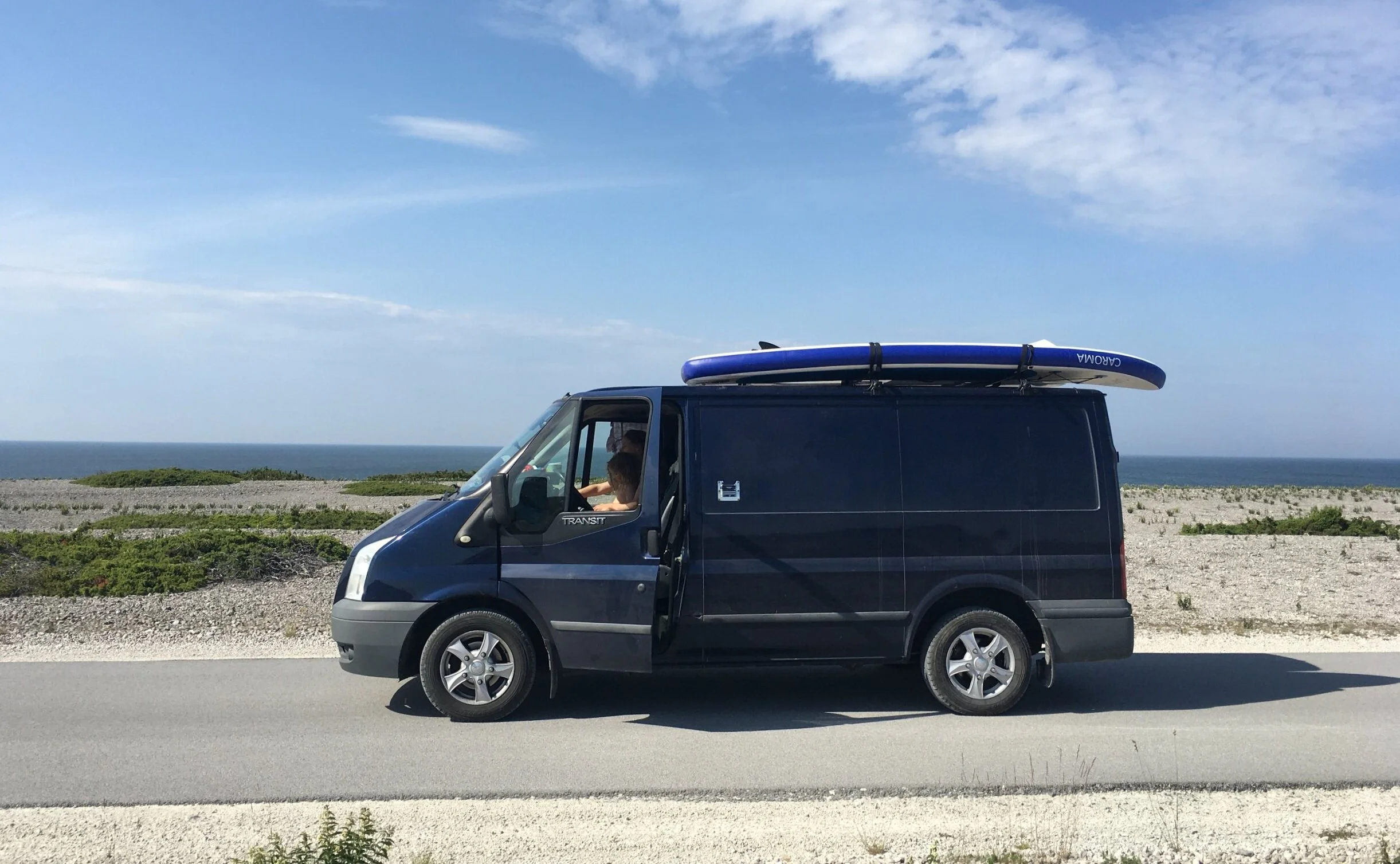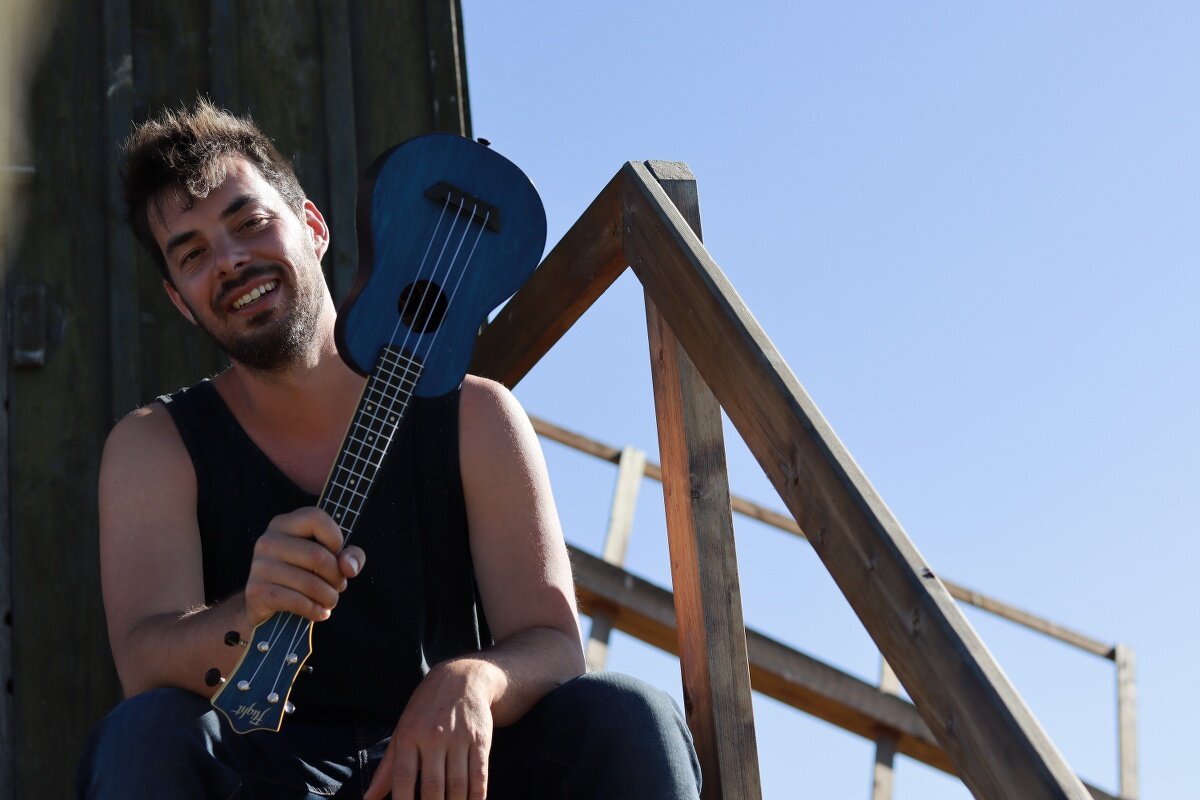So ! A historical-cultural-musical trip is starting around the Batlic Sea ! Yes, you knew.
But who exactly is taking part ? Good question. Here at Ukulele Road Trips, we’ve got you covered.
Here’s the gang:
THE VAN
It’s know by many names: Blue Steel by the previous owner (not a Zoolander reference - I asked), Fordy-ford sometimes, and it could even be called the Balt-mobile considering where it’s headed.
But we refer to it more prosaically as ‘The VAN’. It is. It’s the van !
The Van already on the trip’s next destination: Gotland’s isle of Fårö
A 2010 Ford transit T260 in case you’re into those kinds of numbers.
It’s very friendly, and patient during long stops. An ideal character for one such musical tour. Also, it lets us sleep in it, which is very kind.
The Victoria Tenor CEQ Ukulele
I like your shape and I like your curves,
Victoria, you are a ukulele.
I’ve packed you in the van next to the preserves,
We’ll sing and dance on islands gaily.
Dm, first chord in the verse of “On this Island (Öland’s Visa )”
A striking match: This Flight uke struck the right note, and our collaboration seems to strike a right chord - & sometimes more than one !
CEQ means it can add special effects to your playing without plugging it in. Baltic magic.
BEN
Yes, somebody needs to do most of the driving and write & sing the songs. That’s where I come in. Hi ! I’m Ben.
Here’s a mildly odd picture of me grinn-singing in front of a windmill on Öland:
“Caught wind of a good mill in the area…”
Did you know that around the mid-1800s, Öland had about 2000 windmills ? Crazy - it’s pretty small you know.
Each farm had its own windmill. And there’s still 355 on the thin Ö today. None that I’ve seen are still turning and milling though.
They are very pretty but not practical to travel with.
A SECOND DRIVER AND A PASSENGER
They’re in that picture at the top, maybe you noticed. They’re pretty low-key.
One is very sweet and gets cranky when hungry, and the other one is a young child.
THE SOPRANO TRAVEL UKE
All ukes are travel ukes if you can fit them in a van.
This soprano is also a travel uke by name: Flight TUC-35 travel ukulele.
It has a slighlty longer neck, and got the nod from the rest of the team because it’s good-looking and is the right colour: dark blue !
The colour theme of the trip !
It’s made of mostly plastic which is different:, and much better as a mace if you’re in a battle.
Speaking of which:
Öland AND THE IRON AGE
The Iron Age is a nifty term to say from 1200B.C. to the 6th Century. And Öland and its inhabitants have been pretty busy defending themselves over the years: having all your neighbours of the Western Baltic coasts sail by is an incentive for them to come and have a closer look !
Meaning that today, the other architechtural feature of Öland apart from the relatively recent mills, are the foundations of old Iron Age fortresses.
These are the ex-sites of mostly everyday life, but some dramatic events punctuate their history.
Most remarkable in my eyes are the beauty and intricacy of some of the jewellery found there. Completely goes against (maybe) some ideas we have about these times. Even if they were mixed in with the sight of an awful attack.
One of these fortresses on Öland has been rebuilt and redsigned: Eketorp. It’s partly guesswork but it gives the visitor an idea:
Eketorp’s gated entrance
Two peasants and the local King enjoy the sunshine (colorised - circa 496 A.D.)
Come in for an öl









